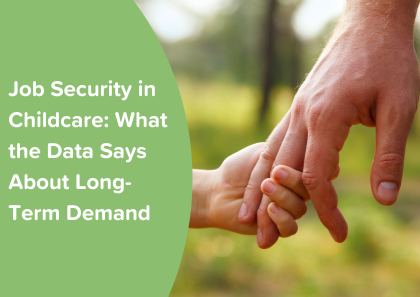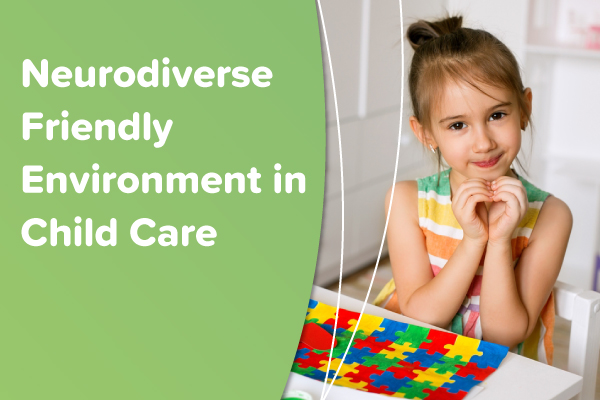Demand for high quality educators for the early childhood sector continues to grow. A career in early childhood education is perfect for those wanting a meaningful, fun and promising career where they can make a difference in the world.
The first five years of a child’s life are when the most crucial brain development takes place, making this time vital for laying a solid foundation for a future love of learning and strong sense of worth and wellbeing. Early childhood educators provide care and educational experiences to children during these fundamental years, making roles within the sector essential for society now and well into the future.
But how do you know if you are ready for studying early childhood education? We’ve put together a checklist to help you gauge whether it’s time to explore a career in early childhood education.

1. Have you done your research?
Before you start studying early childhood education, it’s worthwhile doing some research about the kind of role you would be looking at working in and what it involves. Speak to those already working within the sector, chat with course advisors, and explore what the career may have to offer you as far as salary, hours and daily tasks and responsibilities on the job.
While doing your research you can assess your own priorities for your career. What is essential to you, what is flexible and where do you see yourself in the future?
2. Are you suited to a career in early childhood education?
There is no one type of person who can be a successful early childhood educator, but there are qualities and attributes that you will need to work on to thrive in the sector. Perhaps you already have some of them? Top qualities for working in early learning services include:
- A caring nature
- Patience
- Common sense
- Effective communication skills
- The ability to work in a team
If you don’t feel like these areas are necessarily your strengths, don’t worry — in a quality course these skills may be nurtured and enhanced through your theoretical learning and practical placement.
3. Do you want to enter a sector with excellent job prospects?
The early childhood sector continues to grow, with demand for early childhood education services increasing for a range of reasons. These reasons include increased female participation in the workforce meaning more support needed to care for children, as well as government reforms and a growing understanding of the importance of a high-quality early childhood education for children.
In turn, highly trained educators for the sector will continue to be in demand for the foreseeable future. Studying early childhood education means you will open doors to a sector with true career potential now and for years to come.
4. Are you looking for a career you can progress in?
There are many roles available in the early childhood education sector, from an Educator or Kindergarten Assistant, to a Room Leader, Centre Director and more. Professional development and upskilling are prioritised in the sector, meaning you will have the ability to further your qualifications and your career over time. For those looking for a university pathway, our Diploma of Early Childhood Education and Care (CHC50121) can lead you to a Bachelor of Education in either Early Childhood Teaching or Early Childhood and Primary Teaching. This sets you up for a career as a teacher down the track if you so choose!
5. How do you feel about a job full of variety?
Knowing what kind of work environment you prefer can be really useful to inform your career decisions. When considering studying early childhood education, it’s worth knowing that you will have a lot of variety in each day and you certainly won’t be stuck sitting for long hours.
In early childhood every day is different and children are certainly entertaining. You will have many stories to treasure from each day working with children, and you’ll be moving between indoor and outdoor environments which many find to be an enjoyable aspect of working in the sector.
Do you know what you need to do to start studying early childhood education?
If you have read this far and are thinking that early childhood education sounds right for your career path, it’s time to learn what to do next. Finding a quality early childhood education course that is delivered to the highest standard is the best way to launch your career. Look for a provider who has a solid reputation in training for the early childhood sector and offers ample support for learners. For example, here at Practical Outcomes we allocate a dedicated trainer to each and every learner who will support them from the beginning of the learning journey to the very end. As well as support, practical experience is vital for hands-on learning that will prepare you for the real world, so a course that prioritises practical placement within it is a must.
You’ll also need to work out which course is right for you to study. It’s common to begin by studying the Certificate III in Early Childhood Education and Care (CHC30121), which will get you ready with the fundamentals of becoming an educator, nanny, kindergarten assistant or family day care educator. Available via online training through workplace delivery mode or distance education, when you undertake this course via Practical Outcomes we help you organise the placement hours which are required as part of gaining the qualification.
Developing the soft skills of our learners, like emotional intelligence, cultural competence and patience is also a focus area for us at Practical Outcomes. We believe that soft skills build strong, successful educators and our training approach promotes self-reflection to optimise outcomes. Our ultimate goal is for you to reach your goal and thrive in this important sector.
If you’ve gone through this checklist, and are excited to commence your training in early childhood education, our team would love to discuss your course options further and help you decide which is the best fit for your career goals.
Get in touch with Practical Outcomes today!



